Hello and welcome to my blog, Author Interviews. My name is Fiona Mcvie.
Let’s get you introduced to everyone, shall we? Tell us your name. What is your age?
Joseph: My name’s Joseph Malik. (Pronounced MAH-lick). I’m “washes his heartburn medication down with bourbon” years old.
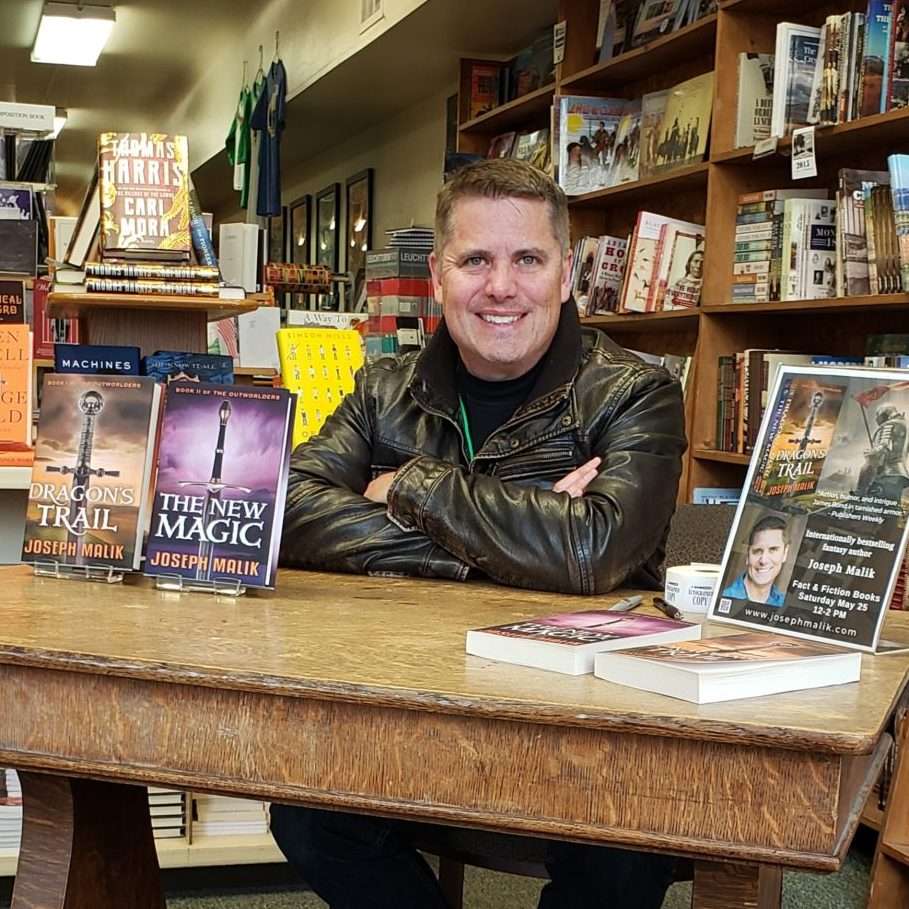
Fiona: Where are you from?
Joseph: I’m American; I live in a small seaside town near Tacoma, Washington.
Fiona: A little about yourself (i.e., your education, family life, etc.).
Joseph: I grew up on the Blackfeet Indian Reservation in northern Montana. My stepfather, who raised me from age three, was fullblood Blackfeet; my mother was a wild-eyed spinning hippie with a master’s degree in Algonquian languages. We spoke Blackfeet in the house, kept robes and buffalo skulls on the walls, the whole thing.
I originally wanted to be a musician. Ileft my hometown right after graduation to join a band that that had a development deal with a major record label. I moved to Seattle a few years later. I studied English in college, but with much more emphasis on sociolinguistics and the philosophy of language than creative writing.
I’m currently a soldier in the U.S. Army Reserve, mobilized under the U.S. Special Operations Command. I’m married, no children, two big, loveable junkyard dogs—an American Bulldog and a Boxer-Dogue de Bordeaux cross. We all live in an old barnthat we converted into a house a few years ago.
Fiona: Tell us your latest news.
Joseph: The big news right now is that I just returned from WorldCon in Dublin, where I was a panelistand also did an autograph signing. The story is on my blog at www.josephmalik.com/aar. Next month I’ll be speaking in a writing class at Hugo House in Seattle.
Fiona: When and why did you begin writing?
Joseph: I don’t know the “why.” The “when” is easy, though: I used to write plot points in the margins of my books in grade school, and then I’d use those to make up stories that I’d tell my friends. I wrote my first novel in high school. It was around 400 pages, single-spaced, and typewritten, so . . . probably 200,000 words? I still have it in a trunk right here in my office.
I enjoyed writing, but what really settled me on being an author one day was the chorus of ooh’s and aah’s from people when they saw my manuscript, or even heard that I did it. There are few highs in life like having people who barely know you tell you that you did something really cool. I still love that part of it. My favorite part of all of the success I’ve had is the connection with readers. I love meeting readers, I love signing books, I love receiving emails and DMs from readers.
Fiona: When did you first consider yourself a writer?
Joseph: When I got my first professional writing gig in college, writing a fitness column for an insurance company’s wellness newsletter.
Fiona: What inspired you to write your first book?
Joseph: I honestly don’t remember. It’s been a long time.
Fiona: How did you come up with the title?
The New Magic, my second book,is a reference to a line in the first book in the series, Dragon’s Trail.“The New Magic” is what the people in the world of the series call alien technology.Their world is in a spot in the universe where the fabric of spacetime is prone to rifts, so it’s effectively a nexus between many worlds.
I’m torn on the title for the final book in the series. The current title is Coin of the Realm, but I’m thinking about going for broke and naming it The Outworlders, after the series. The more it takes shape, the more I’m thinking I’m going to go that route.
Fiona: Do you have a specific writing style? Is there anything about your style or genre that you find particularly challenging?
Joseph: I’m writing this series in omniscient third, from the POV of a fictional narrator, who is his own character and is relating the story as he heard it. In the third book, which is shaping up to be a framed narrative told in a series of flashbacks, readers will learn who he is and how he knows all this.
The challenge is that, being who he is, he doesn’t know every single detail; he only knows what he’s been told.
In the second act—the book I just published, The New Magic—things start to go wrong (as, let’s face it, they do in second acts), and since the protagonist, Jarrod Torrealday, doesn’t understand what’s going on, the narrator doesn’t, either, because he heard this story from Jarrod. It’s a play on the naïf, one of the classic types of Unreliable Narrator.
Everything gets explained in the third book, as I said, but apparently The New Magic made some readers a little edgy because it purposefully ends with dozens of questions. I had to choose between breaking suspension of disbelief by morphing the narrator into an all-knowing author who’s just making the story up, or maintaining suspension of disbelief by continuing to write the narrator as a fictional character who knows what he knows because he was embroiled in this mess at one point. It was a tough call, but I’d do it again the same way.
Fiona: How much of the book is realistic and are experiences based on someone you know, or events in your own life?
Joseph: Most of it. I often make the joke that I do all my characters’ stunts.
When I wrote that first novel thirty years ago, I decided that not only was I going to be an author one day, but I was going to do as much of my worldbuilding hands-on as I could. This was before the internet, so there was library research, and for everything else, you needed to get out there and get your hands dirty. I took up fencing, I made a sheet of mail out of coat hanger wire and put it on a hay bale with a moving blanket under it and beat on it with an axe and shot arrows at it.I’d spent a lot of time out in the woods as a kid, knew a bit about horses, and so on.So, I started there.
When I got serious about learning to write, I decided that I was going to keep doing it. Whenever there was something I needed to figure out, I laced up my shoes, grabbed a notepad, and found someone to teach me. I learned swordsmanship, horsemanship, attended stunt workshops, competed in boxing, and took upmountaineering. I made steel by hand from iron and charcoal in a backyard forge. I traveled to Europe for a summer to pace off castles and ruins. I built a conlang and learned to speak and write it.
I take a lot of inspiration for the magic in my series from having an American Indian upbringing. We believed in magic, spirits, monsters . . . there’s a lot of that in the world I created, too.
I joined the military relatively late in life, after having done all this, and I ended up in a quiet, weird corner of Special Operations. This gave me access to a whole new world of arcane knowledge that you’ll also find in my books: austere medicine, improvised weapons, celestial navigation. I trained with the French Foreign Legion in Africa, and learned how to stage and move a camel caravan.
There’s a lot more; if it’s not in a book already, it will be. I’ve demonstrated many of these skills at fantasy conventions, from conlanging, to knife fighting, to teaching a class on how to use celestial navigation on an alien planet.
I’ll go out on a limb and assess that I’m probably the only fantasy author in the world who can actually do all these things.
The fun part about this is that I get emails and DMs from readers—and I’ve even been cornered by convention-goers who’ve watched me, say, disarm and throw an armoured knight while wearing a sport jacket and tie—asking if my work in Special Operations had anything to do with travel to other worlds. As if I learned how to do all of this as part of some kind of Stargate/Black Ops program.
Fiona: To craft your works, do you have to travel? Before or during the process?
Joseph: I spent some time in France pacing off castles and ruins in the Loire when I was doing my initial world building. We went to Iceland over Christmas last year, and that gave me a whole new world of ideas to play with. You’ll see some of that in my next series.
Also, the Olympic Mountains are right behind our house. You can be alone in the wilderness out here in an hour, surrounded by huge, moss-hung trees and listening to coyotes howl. So, there’s travel and there’s travel.
Fiona: Who designed the covers?
Joseph: I bought a pre-made cover for Dragon’s Trail. I hired a graphic artist to tweak it and build the hardcover and the ads. She designed the covers for The New Magic, and she’ll be designing the covers for the final instalment of the series.
Fiona: Is there a message in your novel that you want readers to grasp?
Joseph: Lemme see . . . bad wizards are bad . . . good wizards are good . . . and being a really good swordfighter will get you laid a lot.
Seriously, though: one big thing, I think, is that the series is a redemption arc for Jarrod, the main character. Redemption takes time.
In Dragon’s Trail, the first book of the series, he’s a jerk. He’s an entertaining jerk, but he’s a drunken, self-cantered womanizer with a self-destructive streak. He starts to shake himself out of it as the story progresses, but he still has a long way to go even at the end of the first book. So, the first message is, stick with him. You’ll watch the world change around him in the next two instalments as he grows out of it and begins to see things in a different way and notice things that he didn’t notice before.
One thing that he notices in the second book—as he starts to grow up and stops seeing things through an American lens— is that, even in warfare, there’s hardly any sexual violence in the world he finds himself in. It’s a sex-positive culture, and rape is considered aberrant, on par with torturing small animals. Also, there’s no patriarchy in place telling women they can’t or shouldn’t do any job they set their minds to. Women are military leaders, and sorcerers, and heads of powerful organizations, right alongside men. He discovers that many of the knights and soldiers he’s been fighting beside are women. In a world made of monsters, you can’t afford to marginalize half your population.
I wrote the entire second book, which is a 90,000-word grimdark fantasy with graphic violence, profanity, and sex, with no rape scenes. There’s not even a scene where a woman is so much as scoffed at. All my books set in this world will be this way going forward. Rape as a plot point is lazy writing, especially in grim dark fantasy, where it’s just so tired. Also, read the damned room, people.
Fiona: Are there any new authors that have grasped your interest? Who is yourfavorite writer, and what is it about their work that really strikes you?
Joseph: My favorite writer, if I had to pick one, is probably William Goldman.I know he was primarily a screenwriter, but he wrote two of my favorite novels: he wrote The Princess Bride, but he also wrote Marathon Man. A fantasy and a thriller, both legendary in their genres. I write fantasy thrillers, and both those books were important to me in my early reading and the early formation of my voice.
Among modern authors, I enjoy reading John Scalzi, whom I didn’t discover until last year, after several readers compared my style to his. Scalzi’s work makes me dream of what I could sound like if I hadn’t taken so many blows to the head.
As for new authors, I really enjoyed Jonathan French’s The Grey Bastards¸ and I can’t wait to see what he does next. I’m also a huge fan of Fonda Lee.
As far as indies go, I’m digging around for new authors who aren’t obviously writing to market. It’s getting harder and harder to find those real standouts, lately—the authors who are breaking new ground. I can only read so many lost prince stories and secret-wizard-school stories.
Fiona: Outside of family members, name one entity that supported your commitment to become a published author.
Joseph: “Entity.” Funny choice of words. When I did my vision quest as a boy, I received a visitation from a six-foot tall badger in a top hat and tails. I’m not making this up; we talked for what felt like hours around a fire.
I learned when I returned home that Badger, with his mighty jaw, was the keeper of stories and the totem for the tribal storytellers, the ones who kept the tribe’s histories. A vision of Badger is powerful medicine. I give him a shout-out in my acknowledgments at the end of every book.
Fiona: Do you see writing as a career?
Joseph: After that? I don’t see that I had a choice.
Fiona: If you had to do it all over again, would you change anything in your latest book?
Joseph: Referring to my WIP, I’d like to have figured out how I wanted to write it before I’d started it twice and thrown it out both times. I’m WAY behind.
As far as my latest finished book, I changed up the voice in The New Magicto give it a much more lit-fic feel, and there are days when I wish I hadn’t.
While I think it’s the best writing I’ve ever done, and it’s very much the book I’ve always wanted to write, it doesn’t have the punch that Dragon’s Trail had. Dragon’s Trail is much more accessibly written, with the allegory and imagery way above the words. It had a much wider appeal, I think, because you can read it as a fun fantasy romp or as a savage polemic about the increasing obsolescence of the warrior caste in our society. I intentionally wrote it to be both, which I think is why it was so insanely successful.
I’m writing the third book in this series in the style of The New Magic—neologisms, phonetic imagery, semicolons, and overall a much more blatant love of playing with words—but early drafts for Stonelands, my next series, are looking like a return to the simpler, action-thriller type of writing that I used in Dragon’s Trail.
Fiona: Did you learn anything during the writing of your recent book?
Joseph: Time management. Also, there are sound mixer websites where you can program and mix your own ambience: crackling fires, battlefields, taverns, rainstorms. Total game-changer.
Fiona: If your book was made into a film, who would you like to play the lead?
Joseph: I’m not up on popular culture enough to even begin to answer this question. I feel the same way about popular culture that many people feel about tarantulas: it’s not a hatred per se, but I prefer to not have it in the same room with me.
Fiona: Any advice for other writers?
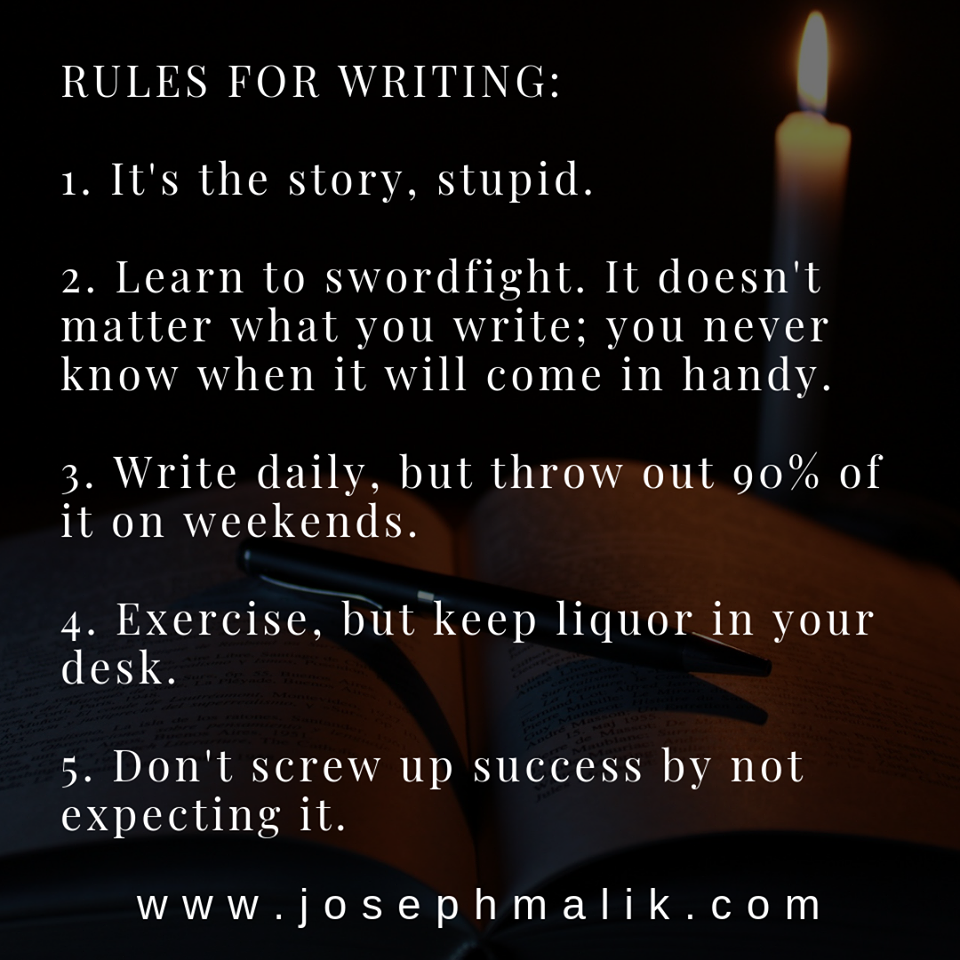
Fiona: Anything specific you want to tell your readers?
Joseph: Yes. Specifically, I have a message for the readers who think I was part of a secret government program that explores other universes:“I will neither confirm nor deny.”
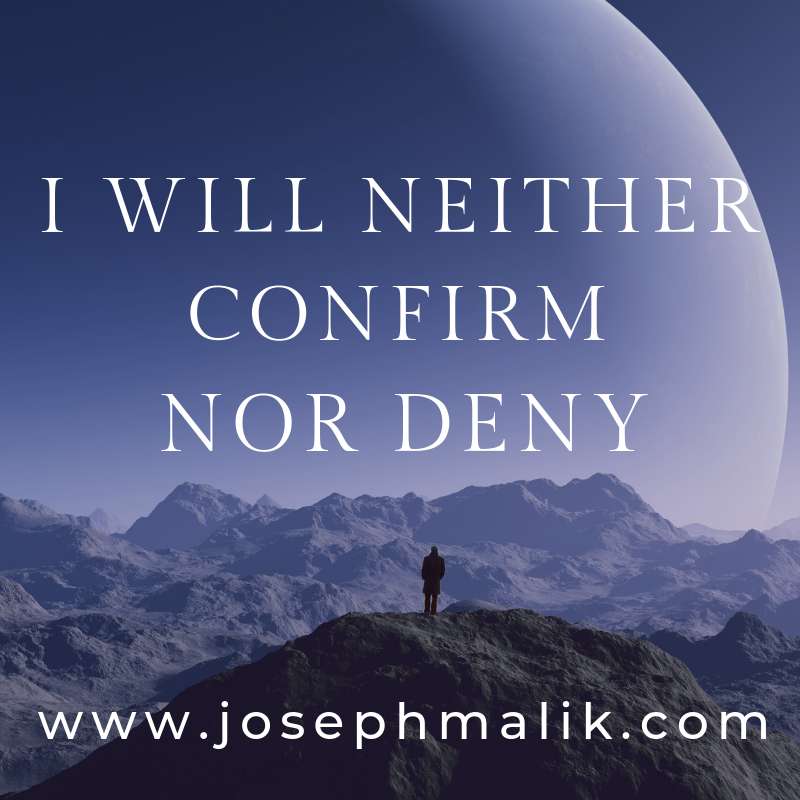
Fiona: What book are you reading now?
Joseph: I’m not actively reading anything at the moment, outside of some stuff for work. I’ve been in a writing frenzy for the past few weeks.
Fiona: Do you remember the first book you read?
Joseph: I don’t. I was reading by age four. One of the first things I remember reading was Dr. Seuss’s I had Trouble in Getting to Solla Sallew:
I’ve bought a big bat,
I’m all ready, you see.
Now all my troubles are going to have troubles with me!
Words to live by.
Fiona: What makes you laugh/cry?
Joseph: Being in the Army.
Fiona: Is there one person, past or present, you would love to meet? Why?
Joseph: Meh. I’m here, now. If they’re important to me, we’ll meet.
Fiona: Do you have any hobbies?
Joseph: Not that aren’t work. If I’m awake, I’m working.
Fiona: What TV shows/films do you enjoy watching?
I don’t watch much TV, but I’m really enjoying Another Life on Netflix.
Fiona: Favorite foods, colors, music?
Joseph: Food: Greek cuisine. Color: oxblood. Music: Peter Gabriel.
Fiona: Imagine a future where you no longer write. What would you do?
Joseph: Die, probably.
Fiona: You only have 24 hours to live how would you spend that time?
Joseph: With my wife and my dogs, probably writing letters.
Fiona: What do you want written on your headstone?
Joseph: IT’S PROBABLY FINE.
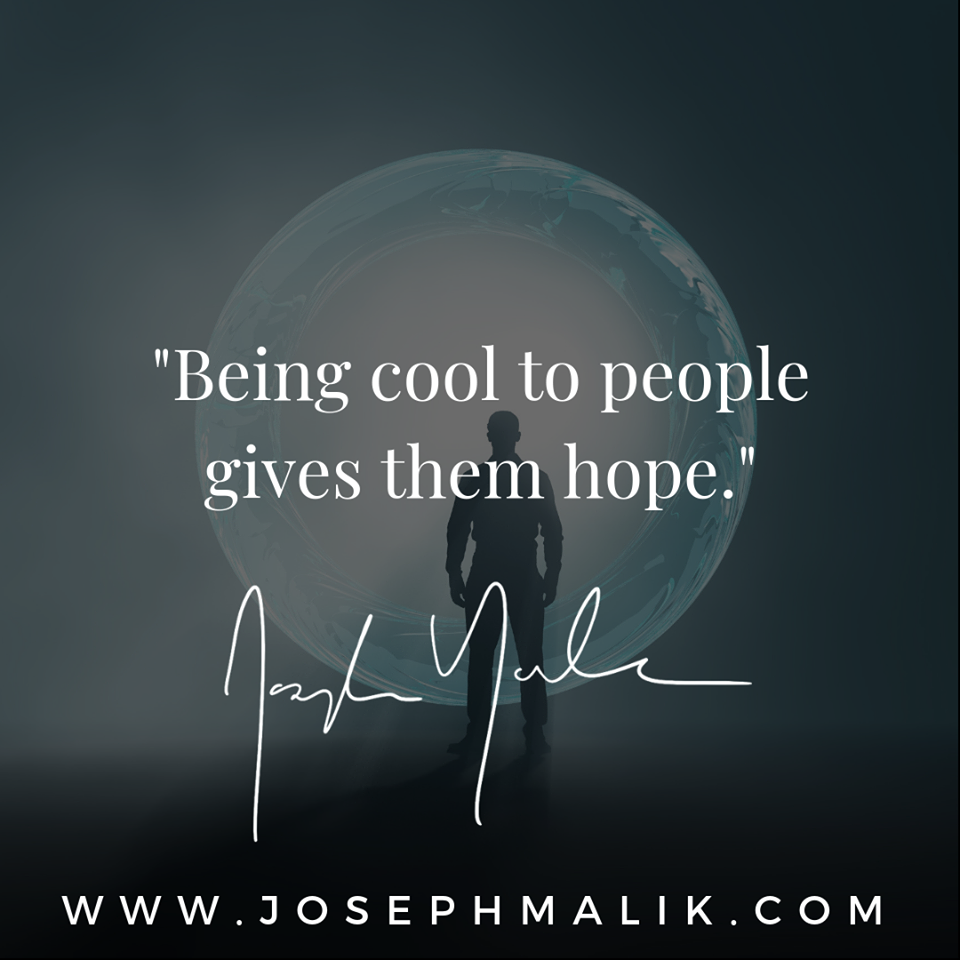
Fiona: Do you have a blog or website readers can visit for updates, events and special offers?
Joseph: Absolutely. www.josephmalik.com
Amazon Authors Page USA https://www.amazon.com/Joseph-Malik/e/B01JFBQV4I?ref=sr_ntt_srch_lnk_1&qid=1567243303&sr=1-1
UK https://www.amazon.co.uk/Joseph-Malik/e/B01JFBQV4I?ref=sr_ntt_srch_lnk_1&qid=1567243309&sr=1-1

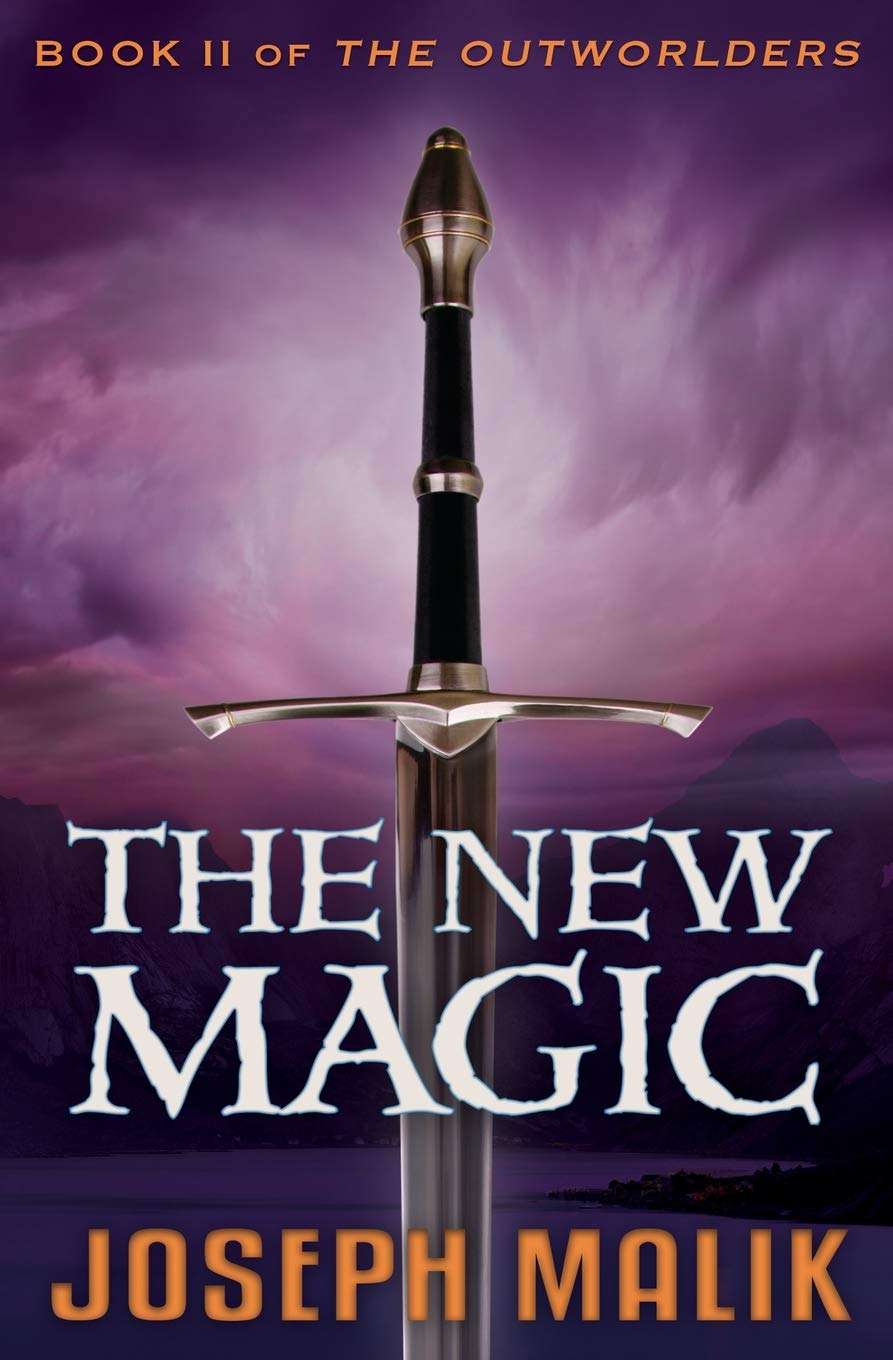

I’ve got a soft spot for stories that mix science and fantasy together. I don’t usually fret about the specifics of the mix. Sounds like your stories might fit that bill. Best of luck to you.